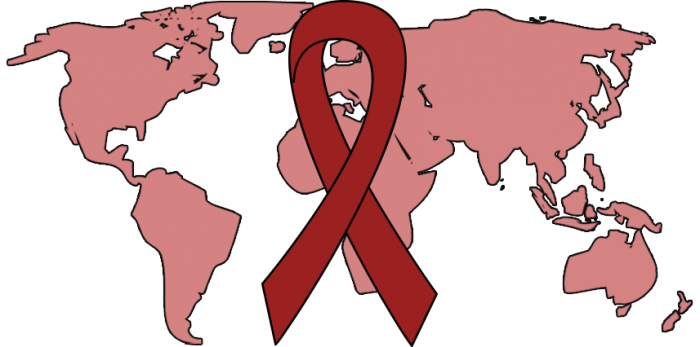December 1st, 2014 by Rachel | Tags: Peace Corps | No Comments »

Prior to leaving for Cameroon, someone asked me this question, “How is Peace Corps going to ensure you’re safe from sexual assaults especially in a country with a high rate of AIDS?”
When I was asked this question, I was angered and sad to see that there is still so much ignorance about Africa and AIDS. After having been in Cameroon for two and half months and received education on HIV/AIDS in training, I’d like to take an opportunity to educate others about this disease on World AIDS Day which is today.
I would like to first say that life expectancy of many people living with HIV/AIDS now exceeds the average life expectancy of people without HIV/AIDS as long as they receive appropriate treatments and take a good care of themselves.
Treating people with HIV/AIDS has come a long way since the 1980’s when people were dying left and right. Living with HIV/AIDS is no longer a death sentence today. There is a treatment called Antiretroviral Therapy (ART) that treats people living with the disease. This therapy consists of three antiretroviral drugs that help suppress HIV and stop the progression of the disease. If one does get raped, have unprotected sex or get an injection with unclean needle, there is also a drug called Post-Exposure Prophylaxis (PEP) that has 80% success rate of preventing HIV/AIDS from being developed after having been exposed. It must be taken within the first 72 hours after possible exposure to HIV/AIDS in order to greatly reduce the risk of getting HIV/AIDS. The earlier it is taken, the more effective the treatment is. It is readily available to Peace Corps Volunteers.
Only 4.3% of people in Cameroon have HIV/AIDS. The countries in Africa with the highest percentage of people who have HIV/AIDS is in the 20’s percent. This is not to say we should ignore the problem because the percentage may appear lower than what you thought, but it is to acknowledge everyone what is the true percentage of people living with HIV/AIDS. To be honest, 20% is still a huge number and instead of being fearful of going to an environment where there is a large number of people living with HIV/AIDS, I believe that we should encourage people to go to those places and help decrease the number. By refusing to allow people to help, we are keeping the numbers high.
Cameroon has done a lot of work to educate their population about preventing the spread of the disease. I interviewed my host family in Mengong about HIV/AIDS for one of my many training assignments, and I was very thrilled that they had well-rounded knowledge. They understood how to have safe sex and knew that antiretroviral therapy existed. They said that while Cameroonians are very open to talking about the disease, many people living with HIV/AIDS will still not tell others that they have the disease due to stigmatization and fear of being rejected by other people. Therefore, we still have work to do in educating people about accepting others with the disease.
While so much progress has been made in treating and preventing HIV/AIDS, we still have work to do in improving the situation such as creating a vaccine to prevent the disease and educating others about currently available options to treat people with the disease.
Since I was also asked about how Peace Corps handle sexual assaults, I thought I should share about how Peace Corps handle the situation. Peace Corps’ current director, Carrie Hessler-Radelet, was sexually assaulted during her Peace Corps service in the 70’s. Since becoming the director, she has made improving protections against sexual assaults and the quality of care for those who were sexually assaulted her highest priority. From the lectures I have heard from both the medical and security teams during training, I have been impressed so far by how seriously they take in ensuring we are protected from sexual assaults and the high quality services they offer such as counseling and flying victims back to DC with a PCMO to see doctors in DC for those who do unfortunately get sexually assaulted. From what I have gathered in the training sessions, I just simply need to follow the security protocols and beware of my surroundings.
One should keep in mind that one in five women experience attempted or completed sexually assaults on college campuses in the US, which is to say that being in the US is equally dangerous as being in Cameroon. I personally know at least three young females who were raped in college in the US. We have to fully realize that every country has its own share of problems and no country is superior to one other country.
